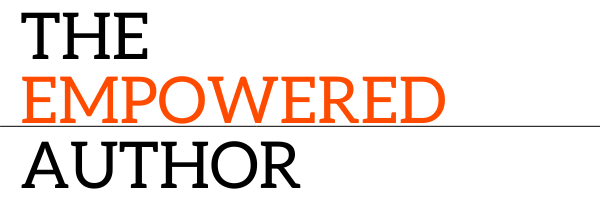Copywriting tips for authors
by Tom Albrighton
1. Can you explain some of the essentials of great copywriting?
There are three things you need to bring together: audience, product and benefits. So you need to know who you’re writing to, the product you’re writing about and how it helps people.
Knowing the reader is partly about practical things, like their likely age and interests. But more importantly, it’s about empathy – understanding, at an emotional level, what they want to bring into their lives, and what they want to get rid of.
Great copywriting lives at the overlap between what the reader wants and what the product does. Marketers say, ‘sell the sizzle, not the sausage’. It means that what really sells is the customer’s experience of using a product – not the actual features of the product itself.
Beyond that, it’s about expressing benefits in a creative way, which is a huge topic and a very valuable skill. In my book, I describe creativity as being original, witty and emotional to dramatise benefits and sell the product.
2. You’ve got a blank page and you need to write some marketing copy to promote a book - where do you start?
As a copywriter, I’d start by understanding the benefits that the book offers to its readers. Where will it take them? What will it make them feel? What other lives will it let them live?
If it’s non-fiction, it might be a question of what it will allow the reader to do, or gain, or learn. But that still needs to be expressed in an engaging, emotional way – not just a factual description.
Then, it’s a question of dramatising these benefits as well as possible, so the reader feels drawn in and wants to find out more. You could try asking a compelling question, or describing an unresolved situation, or threatening a bad outcome that needs to be prevented somehow.
On top of that, there are all the proven persuasive techniques – social proof (review quotes, reader stats), consistency (if you liked that, you’ll like this), liking (this celebrity likes it) and scarcity (special time-limited offer!). These are all covered in chapter 13 of my book.
3. How do you write a great headline?
There’s no one right answer. In my book, I suggest some formulas you can use, as follows…
You can ‘just say it’, by straightforwardly describing what’s on offer (‘A simple guide to angling for the absolute beginner’).
You can tell the reader what to do, or what they could do (‘Learn Portuguese in time for your holiday’).
You can generate intrigue with a question, or a provocative statement (‘Did you know most office romances are doomed to fail?’).
You can promise insight, often by using the word ‘why’ (‘Find out why you can never stick to an exercise plan’).
You can offer the reader some sort of novelty or news (‘Meet the new breed of undercover agent’).
Or you can set the tone or theme for the copy to follow (‘It was a summer of long, lazy days… and untold secrets’).
However, you can’t just rely on these formulas. There are as many good headlines as there are products – or books. And often, what works is something that’s completely unexpected in the context.
4. I encourage all authors to have a one or two line elevator pitch ready for when someone says - Oh you’re an author, what sort of books do you write? Any tips?
Sounds like a good idea! Returning to the idea of reader benefits, I’d try to get beyond factual description and say what your books actually offer people.
So instead of just saying ‘I write historical romances, mostly set during the Second World War’, you could say something like ‘My books take readers away to the time of the Blitz, food rationing and unexpected new love’.
Of course, it has to be something you’re not too embarrassed to say out loud. But the more individual, specific and sensually rich you can make it, the more likely people are to remember it. (‘Oh yes, the romance author who writes about food rations!’)
5. Authors and publishers often fall in the trap of using tropes like ’The Book Everyone is Talking About’ or ‘Unputdownable' - how would you recommend they rethink this?
The antidote to cliché is specificity. If ‘everyone’ is talking about the book, we need to know who ‘everyone’ actually is, and what they’re actually saying. If the book is unputdownable, we need to know who can’t put it down, and why.
Unlike a product like a washing machine, a book is articulate. It’s sitting right there, waiting to tell you how it’s unique (assuming you’re prepared to read it). You just need to get that uniqueness across in your blurb or marketing copy.
6. Any tips on writing great calls to action without sounding like…. calls to action?
First, don’t worry too much about sounding like a call to action. It’s perfectly OK to ask for the sale. If you’re offering someone a good deal – like 200 one-pot recipes for £8.99, or whatever – there’s no shame in encouraging them to take it.
If you’re not confident in your call to action, that could mean the rest of your copy needs work. The call to action isn’t a ‘get out of jail free’ card; it won’t magically make the reader jump if you haven’t built a strong case. Ideally you’re just nudging people to do something they’re pretty much ready to do.
Second, be simple and specific. Tell readers exactly what you want them to do. If there’s a choice of options, make them clear – and if there’s a reason to choose one option over another, make that clear too. Make sure all instances of the call to action are consistent with each other, so readers don’t get confused.
Third, make it forceful, by restating a benefit or bringing in a persuasive principle. There isn’t room here to say exactly how, but it’s all in my book!
7. Any tips for writing copy for social media?
Well, try not to see it as copy. When brands post traditional ad-style copy on social, it can come across as stilted and stiff. Then, when people post derisive replies, they end up looking even worse.
Instead, just be human. Let your enthusiasm for your book shine. Obviously, you don’t want every post to be self-promotional – but when the time comes, don’t hold back. If it’s obvious that you love your own writing, others will want to love it too.
Tom Albrighton has been a professional copywriter for over 12 years.
In that time, he’s written about everything from cupcakes and cameras to spectacles and solar panels, working for household names like Prudential, Jeyes and Fuji, as well as dozens of small businesses and marketing agencies.
Tom is also a co-founder of the Professional Copywriters’ Network, the UK alliance of commercial writers. In a 2015 DMA survey, he was ranked the #7 ‘Copywriter rated by copywriters’. His agency is called ABC Copywriting.
Tom Albrighton has been a professional copywriter for over 12 years.
In that time, he’s written about everything from cupcakes and cameras to spectacles and solar panels, working for household names like Prudential, Jeyes and Fuji, as well as dozens of small businesses and marketing agencies.



